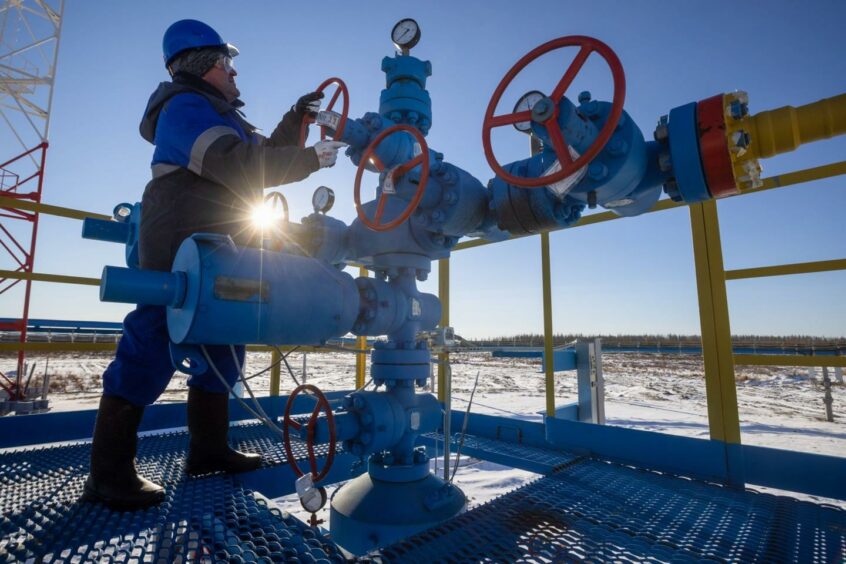
Russian gas giant Gazprom is benefiting from soaring prices in Europe even if shipments to its biggest market are now lower, according to Chief Executive Officer Alexey Miller.
Gazprom’s year-to-date gas supplies to Europe have fallen “by dozens, several dozens of percents,” Miller said in a speech at the St. Petersburg International Economic Forum. However, regional gas prices increased many times over the same period.
“I will not lie if I say we don’t feel offended,” Miller told the gathering.
Gazprom, which last year delivered more than a third of all gas consumed in Europe, this year is sharply cutting its exports to its principal foreign clients. The declines, which have contributed to Europe’s most severe energy crunch in decades, come amid fears that Moscow will retaliate over sanctions sparked by the invasion of Ukraine.
Russia’s year-to-date supplies outside the former Soviet Union, which include main European Union nations and Turkey, dropped 29% compared with the same period in 2021. So far in June, average daily deliveries plunged to the lowest since at least 2014, according to Bloomberg calculations based on historic data.
Since the end of March, Russia has demanded that buyers from the so-called unfriendly nations must use a rubles payment mechanism for gas deliveries. Several European clients refused to comply with the demand and had their supplies cut off.
The Kremlin has said that it doesn’t expect any further supply cutoffs because all its remaining clients have complied with the ruble-payment demand.
However, European energy firms including Eni, Engie and Uniper said Thursday they’re getting less Russian gas amid issues with the key Nord Stream pipeline.
Gazprom cited technical issues at its Baltic Portovaya compressor station, the entry point for the subsea pipeline, for the reductions. According to Gazprom, Portovaya had to halt several compressor units because of technical issues with turbines manufactured by Siemens Energy that are crucial for the functioning of the pipeline. Siemens said that a turbine brought to Canada for repairs is stranded due to sanctions, and a second could not be sent there.
“As of now, there is no solution for the issue that has emerged at the Portovaya compressor station,” Miller said. “Siemens is keeping silence, they are looking for a solution but so far there is none.”
Germany has called the reductions through the Nord Stream pipeline “politically motivated,” challenging Gazprom’s statement that the halt was due to technical issues. The Kremlin said on Thursday the cuts were not deliberate.
As Europe, increasingly concerned about reliability of Russian gas supplies, is making plans to reduce its dependence on Gazprom and increase liquefied gas imports, the Russian producer warned gas prices will continue to grow.
“One can say with certainty that in the near future LNG demand in Asia Pacific will increase,” Miller said. “Could it be the case that in the second half of the year, European LNG importers will compete with Chinese, Indian, Asian buyers for additional supplies of ‘golden’ LNG?”
